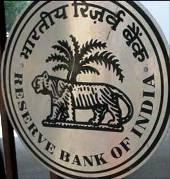 There was widespread disappointment among financial markets after RBI held firm on policy rates, and repeatedly underscored the primacy of managing inflation and inflation expectations as part of its mandate.
There was widespread disappointment among financial markets after RBI held firm on policy rates, and repeatedly underscored the primacy of managing inflation and inflation expectations as part of its mandate.Equities sold off, the rupee weakened and fears rose the currency could weaken further in the coming days.
But as unpopular as Tuesday's decision was, I believe it was the right one.
It's tempting but wrong to blame the real economy's ills primarily on interest rates.
Investment has slumped in India largely because it's become increasingly difficult to acquire land, obtain environmental and other policy clearances, and avail of domestically produced coal.
None of this is RBI's doing.
And, none of this will be solved by a rate cut.
That's perhaps the reason why the central bank was reluctant to cut rates.
Because rate cuts are unlikely to spur a supply response -- until these implementation bottlenecks are resolved -- but, instead, are likely to spur rate-sensitive demand, and exacerbate already-elevated
inflationary pressures.
So, let the division of labour be clear: Let RBI focus primarily on curbing inflation and inflation expectations, thereby reducing macroeconomic uncertainty and protecting our medium term growth potential.
Incidentally, curbing inflation is the best way to stabilising the rupee.
And, let the government focus on debottlenecking supply hurdles, jumpstarting infrastructure and minimising regulatory uncertainty.
That will do more to boosting growth in India than 50 or 100 bps of rate cuts.
And, on that issue of sentiment and Wall Street.
The government needs to be commended for its reformist zeal over the last six weeks.
If it can show the same zeal over the next six months in India -- and work towards a sensible land acquisition bill, a national investment board, and a goods and services tax -- investor sentiment in and on India will surge, irrespective of what RBI does.
The writer is India economist, JP Morgan










